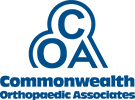A primary care sports medicine physician has special training in sports-related safety and injuries and provides non-surgical musculoskeletal care. They help patients maximize function and minimize disability and time away from sports, work, or school. They focus on treating the “whole” patient to prevent injuries, improve performance, and enhance overall health.
Your sports medicine physician:
- Is board certified in a primary care specialty such as Family Medicine, Internal Medicine, or Pediatrics, but may also specialize in Emergency Medicine or Physical Medicine and Rehabilitation
- Has obtained additional training in sports medicine through an accredited fellowship (subspecialty) program in Sports Medicine
- Has passed a national sports medicine certification examination allowing them to hold a Certificate of Added Qualification in Sports Medicine (C.A.Q.S.M.)
- Adds to their expertise through participation in continuing medical education activities
- Actively participates on sports medicine teams, which may include surgeons, athletic trainers, physical therapists, coaches, and other personnel
Approximately 90% of all sports injuries are non-surgical. A sports medicine physician can maximize non-operative treatments, guide appropriate referrals to physical and occupational therapists, and, if necessary, expedite referrals to an orthopedic/sports surgeon. Common examples of musculoskeletal problems treated include:
- Acute injuries (such as ankle sprains, muscle strains, knee/shoulder injuries, and simple fractures)
- Overuse injuries (such as rotator cuff and other forms of tendonitis and stress fractures)
- Medical, injection, or other therapies for tendonitis or osteoarthritis
- Additionally, primary care sports medicine physicians have received additional training in the non-musculoskeletal aspects of sports medicine. Common examples of these include:
- Sports concussion (mild traumatic brain injury)
- Injury prevention
- “Return to play” decisions in the sick or injured athlete
- Recommendations on safe strength training and conditioning exercises
- Healthy lifestyle promotion
Most sports medicine physicians have experience working as a team physician for local and/or national teams, sports clubs, and collegiate/high school athletes. These physicians are responsible for pre-participation physical exams, injury assessment, medical care, and other related issues.
Primary care sports medicine physicians are ideal physicians for not only athletes but also for the care for the non-athlete as well. They are excellent resources for the individual who wishes to become active or begin an exercise program.

